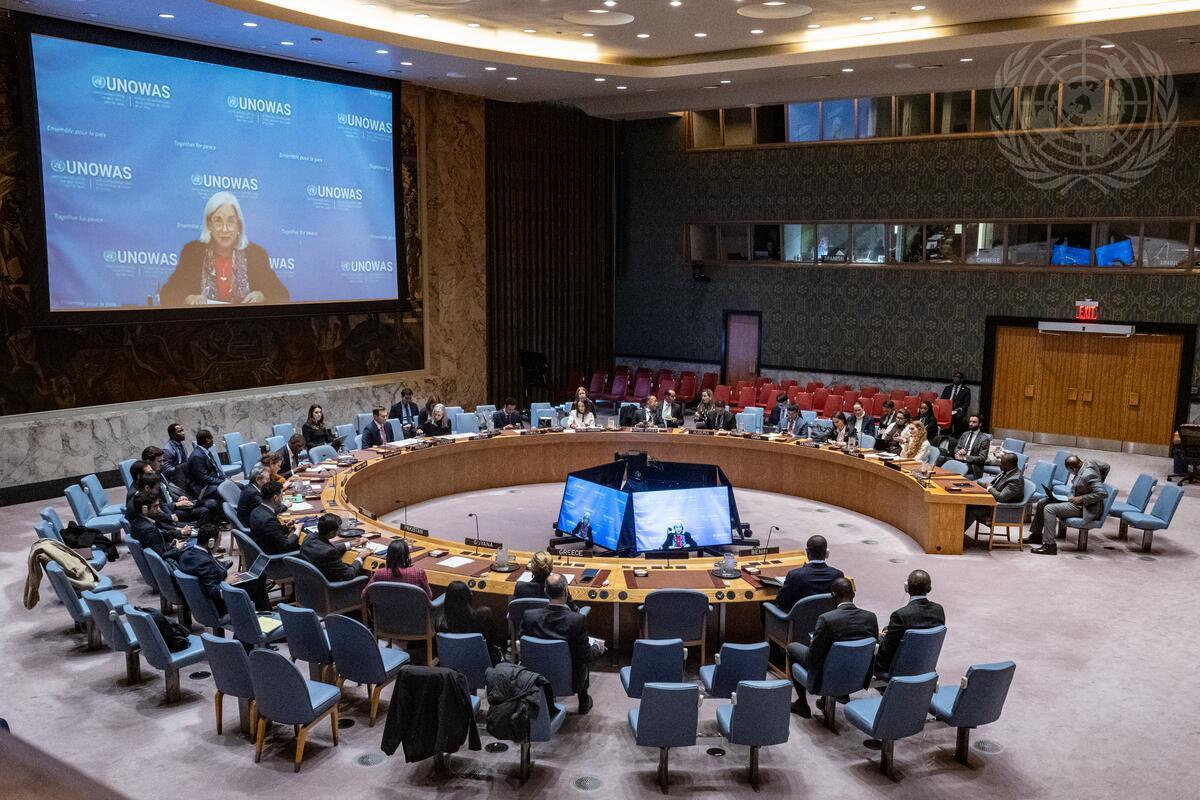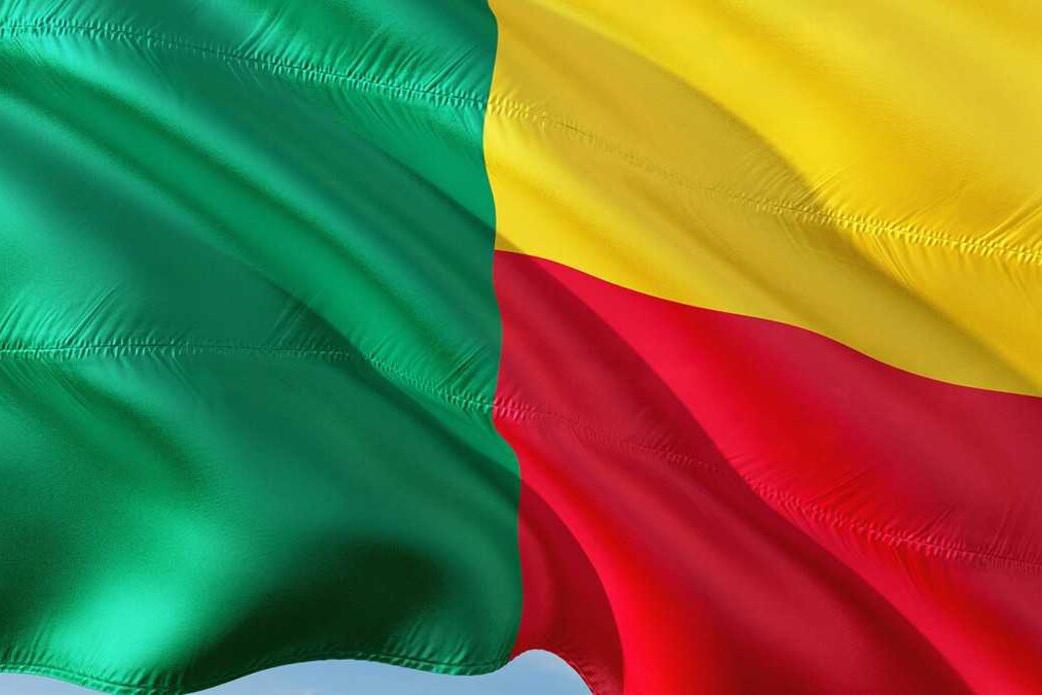Conjointement lancé Il y a un an par les autorités de la transition et les Nations Unies, le projet « Promotion de l’inclusivité et de la cohésion sociale » s’est achevé à Conakry, le 19 janvier 2023, avec une série de recommandations qui ont été le fruit de consultations et d’échanges entre les différentes communautés.
« Il n’y a pas mieux que la paix. Sans elle, il n’y a pas de développement, ni de vie épanouie. Il nous faut œuvrer pour maintenir cette paix. »
Ces paroles qui sonnent comme un cri de cœur sont d’un jeune leader de Dabola. Mamadou Djan Cisse, du haut de ses 25 ans, explique comment Dabola, ville cosmopolite dont il est originaire, ainsi que son pays, la Guinée, « ont besoin d’aller de l’avant. Et cela en passant par une consolidation de la paix ».
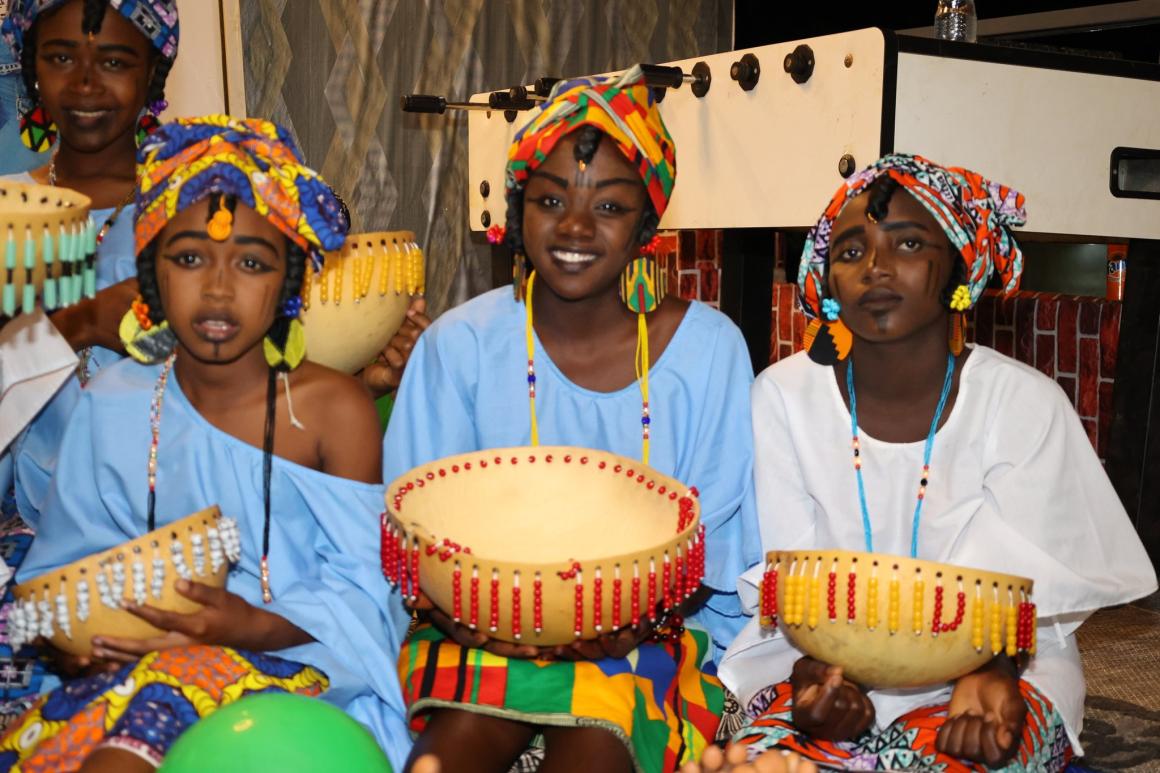
Le jeune Mamadou Djan Cisse participe aux sessions d’échange et de dialogue organisées dans la ville de Dabola, dans le cadre de la caravane de « Promotion de l’inclusivité et de la cohésion sociale en Guinée ». Ce projet sur la cohésion sociale s’inscrit dans la stratégie de prévention des conflits et de consolidation de la paix des Nations Unies et permet d’accompagner des pays de la sous-région dans leurs efforts de renforcement de la cohésion sociale.
A l’instar de Dabola, la caravane culturelle de sensibilisation sur la Cohésion Sociale en Guinée, lancée en novembre 2021 à Nzérékoré, a sillonné, durant toute l’année 2022, des zones considérées conflictogènes, en l’occurrence Macenta, Siguiri, Kankan, Mamou, Labé, Koundara, Boffa, Kindia, et Conakry. Elle avait pour objectif de favoriser les processus de réconciliation au niveau national et communautaire par la mise à contribution des cultures locales, et le renforcement et la promotion des droits de l’homme et le vivre ensemble.
A travers des espaces d’échange et de dialogue, les communautés locales ont essentiellement débattu des problématiques qui fragilisent le vivre ensemble, notamment, les conflits fonciers et domaniaux, les relations entre le sociétés minières et populations, le chômage des jeunes, et les violences basées sur le genre. Aissata Onivogui, la vingtaine, membre du Club des Jeunes Filles Leaders de Guinée (CJFLG), estime que le passage de la caravane dans sa ville de Macenta, était bénéfique. « Nous avons fait une sensibilisation au niveau des écoles, et même des salons de coiffure. Nous avons parlé aux jeunes de tolérance et de cohabitation pacifique comme la meilleure façon de maintenir la paix. Les jeunes ont été invités à laisser les messages de haine et à ne pas se laisser manipuler par les hommes politiques, » dit Aissata.
La diversité culturelle au service de la paix
Dans certaines localités, des pratiques culturelles et sociales qui promeuvent et renforcent la cohésion sociale ont été mises en exergue, avec, entre autres, la revalorisation des pactes de « vivre ensemble » communautaires, le sport de masse, et des manifestations culturelles et traditionnelles.
Koumanthio Zeinab Diallo, auteure et aussi co-fondatrice du musée du Fouta Djallon et du célèbre Théâtre du Musée à Labé, se considère comme gardienne du patrimoine culturel guinéen. Dans le cadre de ce projet, elle s’est évertuée à aller à la rencontre des populations pour les sensibiliser et démontrer qu’à travers le patrimoine culturel, le peuple guinéen peut reconstruire la paix.
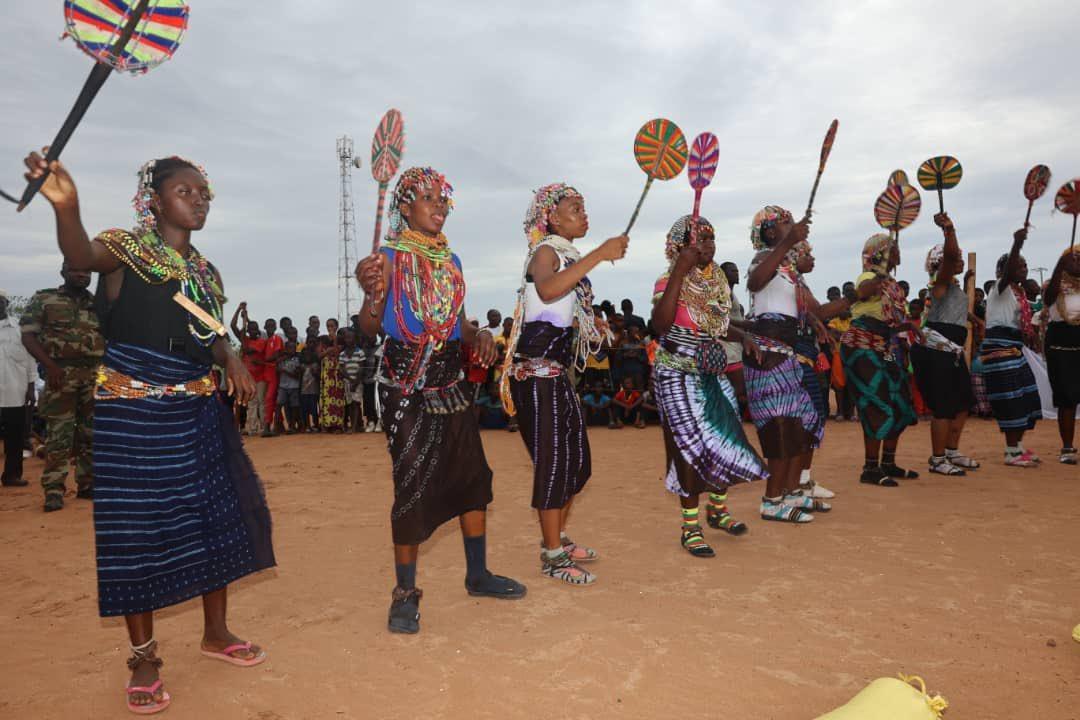
« Moi, je suis l’un des acteurs de la caravane lancée par les Nations Unies, » lance l’Imam de la Mosquée de Labé, El Hadji Mamadou Diallo, A la suite de Mme Diallo. « Pour nous religieux, notre rôle afin de trouver ensemble des solutions pour le maintien de la paix n’est pas difficile et n’est pas caché, » déclare le guide religieux. Il explique que « Dieu nous a créés tous égaux en tant qu’être humain, afin que l’on vive ensemble dans la cohésion. Et nous devons nous éloigner de tout ce qui peut nuire notre entente. »
La place de la femme dans la recherche et le maintien de l’harmonie communautaire a également été largement débattue. Pour Mme Kaba Djessira, « le rôle de la femme dans la consolidation de la paix est primordial. » « Une femme qui a la culture de la paix, c’est tout une communauté qui en bénéficie, » surenchérit-elle. Allant dans le même sens que Mme Djessira, l’auteure Zeinab Diallo déclare que « la femme joue un rôle extrêmement important dans la transmission orale. Déjà dans le ventre de sa maman, l’enfant commence à entendre sa maman et à l’écouter. La maman transmet à l’enfant toutes ces vertus de la culture et elle a en charge la construction de la paix dans la cellule de base qu’est la famille. »
« le projet sur la cohésion sociale a été mené à bien grâce à la volonté et l’engagement de tous les acteurs guinéens. »
Des recommandations pour l’avenir
Lors de la cérémonie de clôture, la Représentante spéciale adjointe du Secrétaire général et Cheffe par intérim du Bureau des Nations Unies pour l’Afrique de l’Ouest et le Sahel (UNOWAS), Mme Giovanie BIHA a déclaré que « le projet sur la cohésion sociale a été mené à bien grâce à la volonté et l’engagement de tous les acteurs guinéens. » La Représentante spéciale a également souligné l’importance de la mise en œuvre des recommandations, fruits de plusieurs mois de réflexion et de discussions.
Les populations des villes qui ont été visitées, ont, entre autres, préconisé l’inclusivité et la transparence dans les processus politiques, sociaux et économiques. Elles ont appelé à une équité territoriale et au renforcement de l’accès aux services sociaux de base, la distribution équitable des richesses nationales, et au respect des droits humains. Le renforcement et amplification des initiatives de renforcement de la cohésion en misant sur les messages lancés par les activités à l’occasion de la réalisation des activités a également été fortement encouragé.
Ces recommandations qui ont été présentées à l’atelier de clôture du projet seront transmises aux autorités de transition de la République de Guinée.
De son côté, le Secrétaire général du ministère des Affaires Etrangère, M. Kabele SOUMAH a salué les résultats du projet. « Je réitère l’engagement du gouvernement à les soutenir, conformément aux efforts pour promouvoir la réconciliation nationale, y compris avec la diaspora guinéenne » a-t-il déclaré.
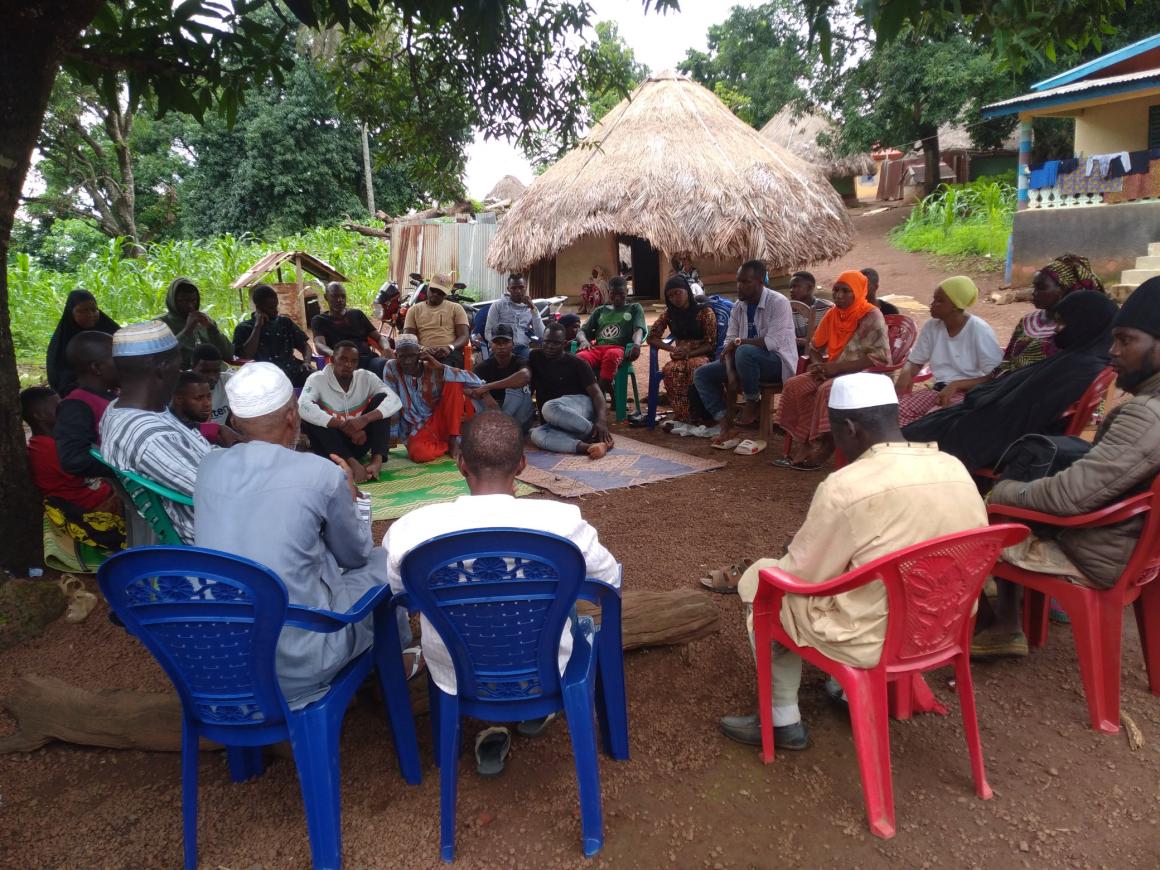
« Nous avons essayé de créer le dialogue sur le quotidien allant dans le sens de la promotion de la fraternité et de la reconstitution de ce lien en lambeau aujourd’hui, » a déclaré Mme Zeinab Diallo, avant d’ajouter que « cette Guinée doit renaitre avec force dans la paix et pour la paix, cette denrée rare que nous recherchons et que nous devons garder jalousement. »


